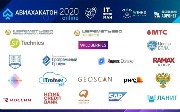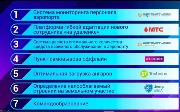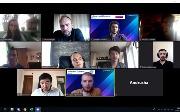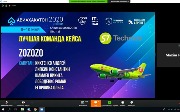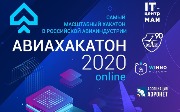MAI Online Hackathon – Mission Accomplished!
This year, circumstances forced us to master the experience of conducting hackathon online. As it turned out, this made it possible to broaden the geography and increase the number of participants, expand their competence in non-standard event organization. We publish the blog of MAI student Anastasia Sukhorukova posted on the vc.ru portal, telling about the organization and implementation of the MAI Aviahackathon.
Preparation
We had to rearrange the preparation process on new rails with lightning speed. In April, when it became clear that offline events were not expected until the beginning of summer, we decided to conduct hackathon online. The event was held on May 8-10, 2020.
Done:
-
We asked the IT and the aviation companies to provide us with cases. These were real business tasks, for which the participants of the Aviahackathon were supposed to develop working prototypes.
-
We defined those responsible for each task for organizing the hackathon (interaction with partners, search for sponsors, event announcement, design of materials and presentations, registration of participants, etc.).
-
Invited experts and juries from more than 30 well-known companies.
-
Worked out the algorithm of work in the Zoom online broadcast service. A separate web room was created for each case with a curator, a representative of the case production company, and a group of experts as well. Participants had to follow the link under their real names so that the curator could check them against the list and prevent spam and bots.
-
Conducted the rehearsal of connecting moderators, experts and participants, video broadcasts with case managers.
The Hackathon
More than 400 people from 4 countries and 19 regions of Russia registered for the Aviahackathon. Not only programmers were welcome to participate, but also product analysts, analysts, marketers, and designers. The invitations to the telegram chat were sent, where information about the event was generated.
At the opening, the participants were greeted by the rector of MAI Mikhail Pogosyan, the rules of the event were announced and warning was made that the failure to comply with them might lead to exclusion from the event. The case-setters presented their tasks to the participants and experts.
There were 6 of them: "Airport personnel monitoring system", "Optimal hangars loading ", "System for calculating the optimal number of ground handling facilities at the airport", "Platform for flexible adaptation of a new remote employee", "Offline pickup point", Taxable buildings definition".
A Zoom web-room and a chat in Telegram were created for each case, where participants, under the guidance of curators, started with the team building, and then the newly build teams could communicate with representatives of the companies whose problems they had to solve for the next two days in the chats.
In two days, the participants were to develop a digital prototype of the problem solution, prove its relevance and practical application to experts and the jury of event, and make a presentation of their project.
Next day, the teams worked on cases before noon. At 13:30, the first check points started. These were the consultation sessions with experts who answered questions, evaluated the efficiency of the project from different points of view and helped to move in the right direction. In accordance with the schedule, the teams entered to the zoom room of their case and presented their initial developments to the experts. There were three check points of this kind.
56 teams showed up at the beginning of the hackathon, though only 34 reached the third checkpoint. Some of them failed to organize, others did not understand the task, and some did not fill in the tables in time. Rules are rules.
Basing on the results of the final check point, where a working prototype of the solution was supposed to be presented, the experts selected the teams that were allowed to make the presentation. Then the best performances were included in the lists of semi-finalists, and then finalists.
The experts evaluated the relevance and the practical application of the elaborated technical solution, the novelty of the idea, creativity, and the usability of the service. Basing on the results of the hackathon, the best team in each case was selected, as well as 3 prizes for the total number of points scored. The team from Armenia became the winner of the Aviahackathon 2020.
Summing up
The unique atmosphere was the peculiarity of the past events, the one that occurs when like-minded people passionately want to go from an idea to a prototype solution in 48 sleepless hours and, therefore, they get united. This year all the participants and the organizers were isolated from each other. But despite this, we managed to create a special communication space, where everyone had their own voice and everyone felt himself as a part of the hackathon community. And this is not our guess, this is the feedback of participants and experts who noted not only the high level of organization, but also the atmosphere of unity and friendliness at the hackathon. Most of the participants were not familiar with each other offline, but were able to coordinate efforts to solve a common task, which is many times more difficult than live on the site.
Now we have a right to call ourselves not beginners, but online hackathon professionals. We managed to transform the traditional offline event into a completely new online product, which was highly appreciated by the participants and experts from leading Russian and foreign companies.
